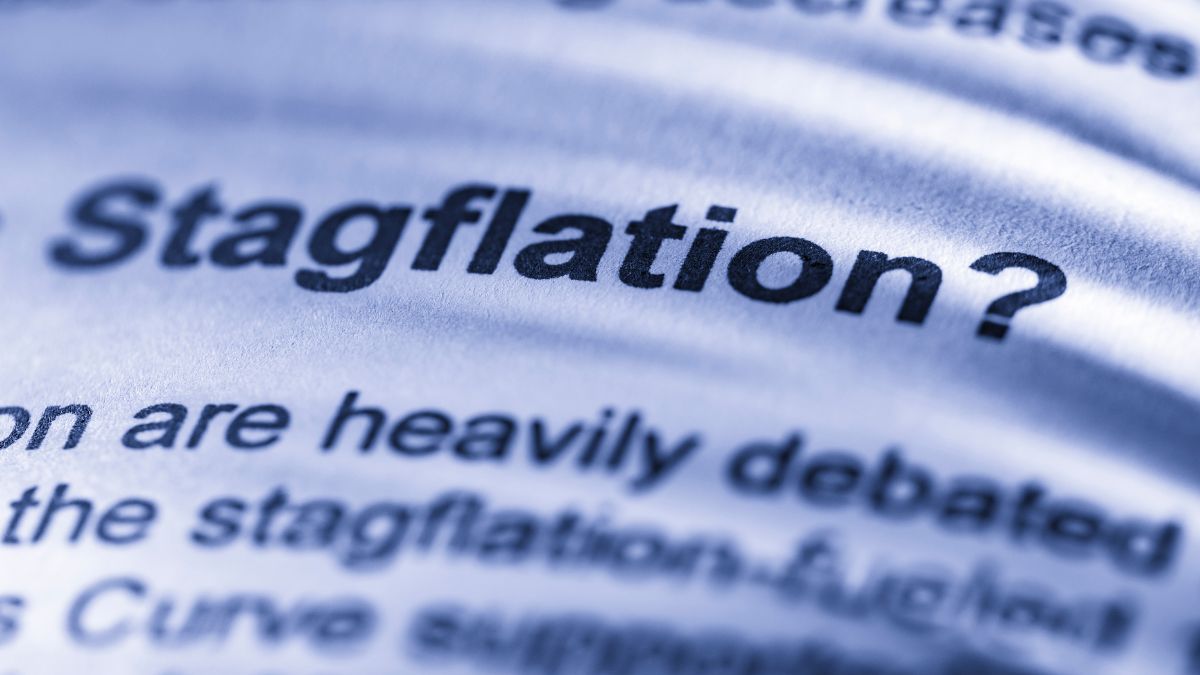Lifestyle
Are We Heading for Stagflation Instead of a Recession?

Inflation isn’t quitting anytime soon, but the economy is stuck in slow motion, so cue the latest buzzword to enter the scene: “stagflation.” Many Americans have already been doomscrolling about the recession, but now, economists and money pros are worried that stagflation might be even trickier to handle if it happens. So, what exactly is it, and how does it differ from a recession? And how will it affect you?
What is Stagflation?
Stagflation is a bad-tasting combo of two economic problems: stagnation (slow or no economic growth) + inflation (rising prices). Typically, if the economy slows down, prices go down, too, and if prices rise, things are great and booming. However, with stagflation, you get the worst of both worlds. Prices keep going up and up while paychecks and job opportunities fall flat.
Ouch, has this happened before?
Yup, back in the 1970s, when high oil prices, slow econ growth, and rising unemployment all reared their ugly heads at once. That period between 1973 and 1982 still shapes how policymakers and consumers think about today’s stagflation risk. The somewhat good news is that this stagflation won’t be as bad as the previous one, according to RSM Chief Economist Joe Brusuelas, calling it “Stagflation-lite.”
Recession vs. Stagflation: What’s the Difference?
The big difference between a recession and stagflation? Well, in a typical recession, the economy shrinks, and people lose jobs, but at least prices usually stop rising. With stagflation, though, we’re dealing with BOTH a sluggish economy and the pain of higher prices at the same time, which makes it harder for policymakers to actually fix things. This also means that for your money, your paychecks don’t last as long, investments can take a hit, and saving for the future gets tougher.
So, while we’re not in a classic recession, it’s definitely not a healthy economy either. This is why the term stagflation has been buzzing around, and we’re all wary of it becoming a reality.
What Stagflation Could Mean for You
To prep for the worst and if stagflation becomes real, here’s how it might affect your daily life:
- Your money and purchasing power shrink: Prices keep rising, and the higher cost of living means your paycheck may not be able to keep up
- The job market gets rougher: Opportunities could decline, making that promotion or new job harder to score
- Investments could take a hit: Both stocks and bonds struggle when the economy is slow and inflation is high
- Interest rates stay high: Borrowing can get expensive with higher interest rates sticking around (e.g., more costly mortgages, car loans, and credit cards)
Unfortunately, it’s a no-win situation since everything will cost more, and the economy isn’t giving you much to work with.
How to Prep for Whatever Comes Next
Nobody can predict the future, but you can still get your finances in order in case it happens.
- Build or beef up your emergency fund and aim for at least 3-6 months of expenses (I get paranoid and have at least 12 months ready, but anything that you can contribute regularly to your fund will be a good start)
- Tackle high-interest debt first because those rates won’t drop anytime soon, and you want to try to bring down your debt before it gets too high
- Revisit your budget to see where you can cut back to prioritize essential spending (rent, mortgage, groceries, transportation, healthcare, childcare, etc.) The “needs” over “wants” will be even more critical.
- Diversify your investments so you don’t put all your eggs in one basket (mix up your assets), and don’t panic-sell when media headlines get crazy
- Level up your skills or certifications to stay competitive in a rougher job market
The Money Move
We don’t have a crystal ball to know if stagflation will happen, if we’ll go into a classic recession, or if we’re just stuck in a weird, slow-growth, high-inflation loop, but at least knowing the difference and having a plan can help you ride out the storm that’s inevitably coming everyone’s way.
It can sound scary, but staying informed, knowledgeable, and proactive means you can stay ready for whatever the economy throws at you. We got this!

